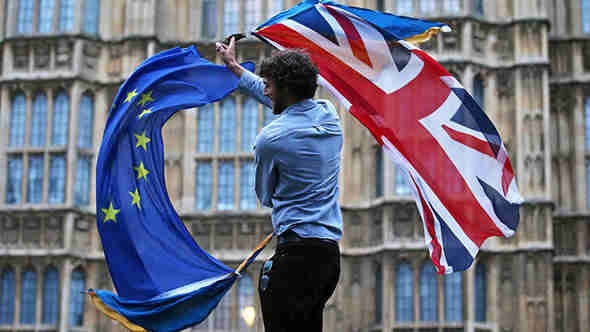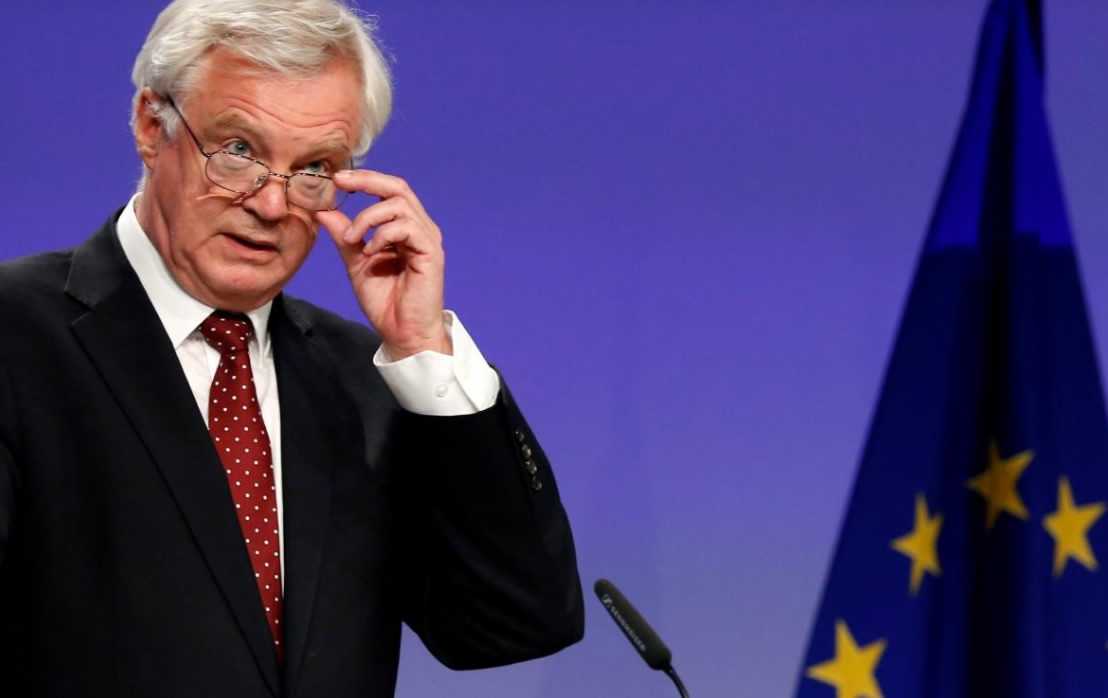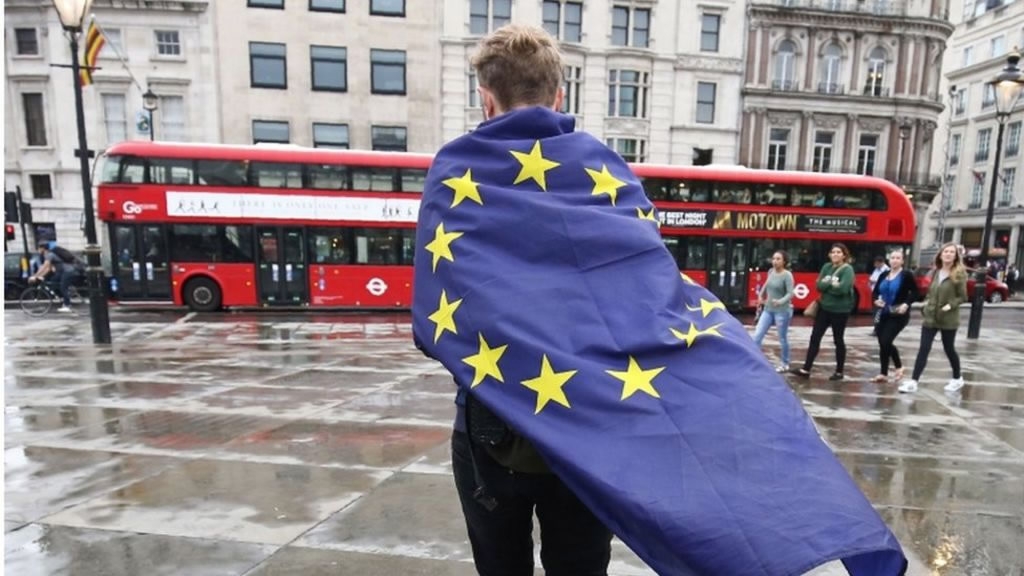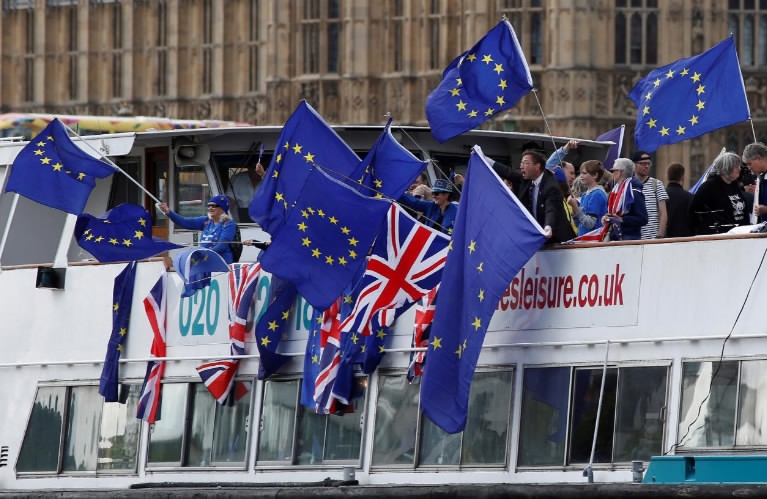
Business
20:16, 02-Sep-2017
Cracking deadlock on Brexit bill may require EU summit talks
CGTN

Britain’s Brexit minister David Davis told a business audience in Washington on Friday that he hoped negotiations to leave the European Union would produce a good deal for both sides, although he conceded that discussions were “getting a bit tense”.
Negotiations so far have centered on Britain’s EU budget obligations, with the EU insisting the bill be agreed before talks can proceed further to discuss areas like international trade.
A 60 billion euro gulf between the European Union and Britain over how much London owes when it quits the bloc may be the biggest obstacle to a deal on an orderly Brexit in March 2019, officials said after talks this week.

Britain's Secretary of State for Exiting the European Union David Davis held a joint news conference with European Union's chief Brexit negotiator Michel Barnier (unseen), marking the end of the third formal negotiation session in Brussels, Belgium, August 31, 2017. /Reuters Photo
Britain's Secretary of State for Exiting the European Union David Davis held a joint news conference with European Union's chief Brexit negotiator Michel Barnier (unseen), marking the end of the third formal negotiation session in Brussels, Belgium, August 31, 2017. /Reuters Photo
There are sharply differing legal interpretations of the “Brexit bill” that Britain will legally be obliged to pay in a divorce settlement with Brussels.
But there are signs too of where compromise may emerge that could allow Prime Minister Theresa May to deliver a headline figure more palatable to British voters than the 60 billion euros widely talked about, without leaving the other 27 leaders staring at a hole in budgets.
The key could be to take account of payments Britain is willing to make after leaving as part of a transition to a new cooperation pact with the bloc, EU officials and diplomats involved in negotiations told Reuters on Friday after tense talks in Brussels.

AFP Photo
AFP Photo
A snag though is that EU chief negotiator Michel Barnier is bound by his 27 national masters not even to discuss any post-Brexit arrangements until “significant progress” is made on agreeing a divorce.
However, Barnier has made clear he does not need to agree any figure before asking EU leaders to launch parallel talks on the future EU-UK relationship -- possibly at a summit with May in October. He would be content with agreeing the “methodology” of calculation before launching Phase Two.
The confidential legal analysis, which British officials said rejected EU assertions that the bloc’s seven-year financing plans are legally binding on member states, meant London was refusing to pay for any commitments after Brexit, Barnier said -- at odds with what May’s government has previously said.

Anti-Brexit, pro-European Union Remain supporters waved flags as they travel up and down the River Thames, outside the Houses of Parliament, in London, Britain, August 19, 2017. /Reuters Photo
Anti-Brexit, pro-European Union Remain supporters waved flags as they travel up and down the River Thames, outside the Houses of Parliament, in London, Britain, August 19, 2017. /Reuters Photo
However, EU officials’ ears pricked up when Davis told the same news conference that, even if Britain found no legal basis for many EU demands, it also recognized “moral obligations” and was prepared to pay for good relations in the future.
A senior EU official stressed to media that, there could be no mixing up of Britain’s obligations incurred pre-Brexit with those it might accept post-Brexit in return, say, for participation in EU programmes or access to markets -- similar to payments that non-members like Norway already make.
Davis said Britain would press for further liberalization of services and engage with international bodies like the World Trade Organization. Trump has said the United States would consider ignoring WTO rulings.
8155km
Source(s): AP
,Reuters

SITEMAP
Copyright © 2018 CGTN. Beijing ICP prepared NO.16065310-3
Copyright © 2018 CGTN. Beijing ICP prepared NO.16065310-3